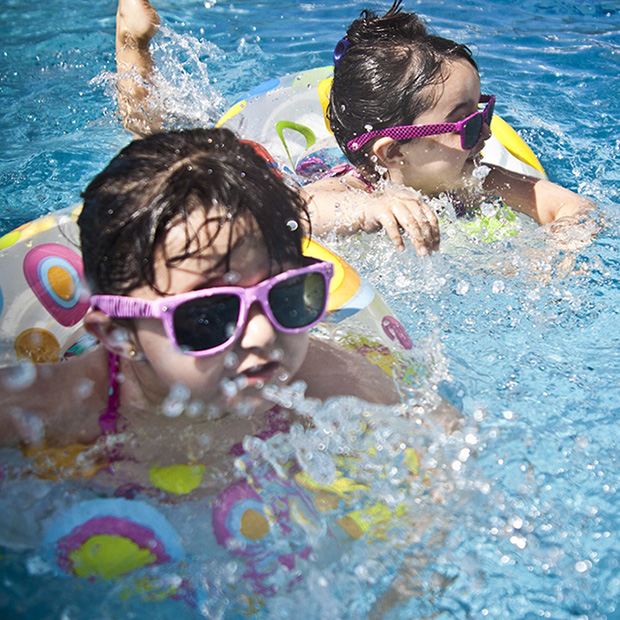Swimming And Oral Health

There’s nothing better than a swim in the pool to cool down during the hot summer months.
Before we dive in, we should be aware of how our time in the pool can impact our oral health. That’s right: the chlorine in swimming pools doesn’t just cause dry skin and eye irritation, it can also have an effect on our teeth.
Chlorine Versus Our Teeth
The reason swimming pools contain chlorine is that it helps to decontaminate the water from microbes and other unpleasant things that could pose health and sanitation risks to swimmers. However, when chlorine is added to water, it forms a weak acid, and unless the pool’s pH isn’t carefully regulated, that acid can lead to a condition called swimmer’s calculus.
Swimmer’s calculus is yellow and brown stains that can develop on teeth enamel after too much exposure to chlorine. It’s also what can make our teeth feel more sensitive after swimming, because enamel erosion leaves the dentin underneath more vulnerable. When we have good oral health, our saliva works to keep our mouths as close to a neutral pH as possible, thus protecting our enamel from erosion, but acid exposure can harm enamel before the saliva can do its job.
This isn’t usually a problem for casual swimmers, but anyone who is a serious swimmer or participates in water sports should be aware of the possibility of developing swimmer’s calculus. The best ways to prevent chlorine damage to your teeth are to maintain a good oral health routine with daily brushing and flossing, drink plenty of fresh water to flush out the chlorine residue, and keep your mouth closed while swimming!
Check out this video to learn about other ways our teeth are exposed to acids:
Dental Concerns Of Scuba Diving
If swimming pools aren’t your thing but you love snorkeling and diving, your teeth will be safe from the effects of chlorine, but they may still face other problems. Barodontalgia, commonly called tooth squeeze, is when tiny air bubbles trapped in cracks, crevices, and holes in our teeth change size due to pressure. This pressure change can result in significant tooth pain and can even fracture teeth, and a good preventative measure is a dental appointment before diving season begins!
Most divers are familiar with how uncomfortable those “one size fits none” mouthpieces can be, but do you know they can be bad for your teeth? Divers with poorly-fitting mouthpieces have to clench to keep them in place, and this can lead to Temporomandibular Joint Syndrome (TMJ), which causes jaw pain and headaches and makes it uncomfortable to chew. If you’re a frequent diver, you might want to invest in a custom-fitted mouthpiece.
Let’s Get Those Teeth Ready For The Water!
We want all of our patients to have a wonderful summer enjoying their favorite water sports and activities without fear for the effects on their teeth. Schedule a dental appointment so that we can make sure your teeth are healthy and answer any of your questions about underwater tooth problems and how to avoid them!
